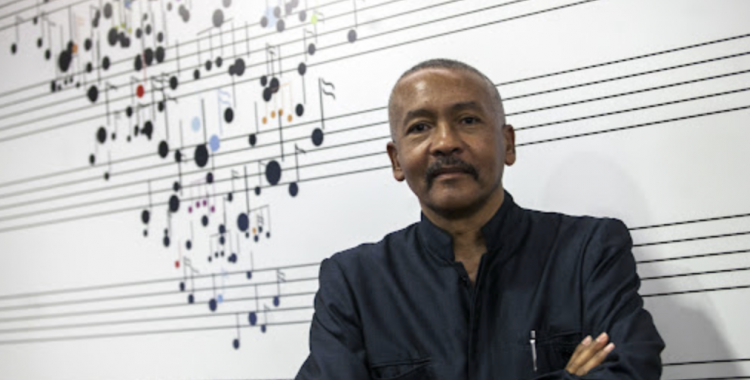The latest work by José Luís Mendonça "A Metamorfose do Elefante", which is released this Tuesday in Portugal, shows an Angola at war with itself, exposed to its own contradictions.
"What we intend to show in this book is how the independentists became the people's executioners, to the point of committing all these atrocities. What I bring up in this book is something that has been very silenced, which is torture. Torture and disappearance", he highlights, referring to the May 27, 1977 process, in which at least 30,000 people disappeared, according to Amnesty International.
On May 27, 1977, an alleged attempted coup d'état, in an operation apparently led by Nito Alves – then former Minister of Internal Administration from independence (November 11, 1975) until October 1976 –, was violently repressed by the Agostinho Neto's regime.
Bridging the gap between the events of 1977 and current Angola, which has general elections scheduled for August, in which he will be indirectly elected - as provided for in the Constitution -, the President of the Republic, José Luís Mendonça says he believes that the ruling party, the Movimento Popular de Libertação de Angola (MPLA), does not admit to relinquishing power.
"They don't admit it. They don't have this notion of the need to have an alternative. For them, alternation doesn't exist", he insists.
As Angola has a mostly young generation, the writer says that he argues that these young people will not accept the continuation of the current situation.
"There is a lot of indignation, a lot of revolt. And what is it like? How does this revolt work without direction? It is with physical and even armed violence, because the Minister of Justice, Francisco Queiroz, said that on the 27th of May there were excesses. And they asked for forgiveness. So you ask for forgiveness and continue to commit the same excesses that are arbitrary arrests, the torture that I mentioned also continues in jails ", it says.
"Young people are arrested, they are then tortured with a beating. I consider this torture that is a violation of human rights. Therefore, the problem of the 27th of May continues in Angola, 27th of May is a process that began in 1977 and continues. I mean, the regime is only maintained through excesses".
"A Metamorfose do Elefante" goes on sale a day after the 20th anniversary of the signing by the MPLA Government and the União Nacional para a Independência Total de Angola (UNITA) of a peace agreement that put an end to more than 27 years of war.
The book evokes the 27th of May, "but also the economic collapse of Angola, around various things that have been happening lately (...) in which there is only one class in charge, a dictatorial class and there is no economic inclusion, political and cultural".
"In these 20 years of positive results, I can see one thing. It is that the struggle in large spaces, in large rural spaces, is really over. All this need to import weapons and the mobilization of young people for war is over. It's the only positive thing I see. Now, I don't see a peace being built in Angola when the adversary with whom you made peace is ostracized in this way", he stresses.
For José Luís Mendonça, excesses continue in Angola.
"These excesses cause a lot of damage to the population, so I'm not seeing social peace either (...) Nobody can survive like that (...) It's an immense sadness", he adds.
Faced with this situation, the writer only sees two alternatives.
"Either I am resigned or I am angry. Why? How is it possible to have an electoral process if there is no contradiction? All the press is taken over by the ruling party which, with the exception of Radio Despertar, which belongs to UNITA, and Folha 8, which it is a newspaper that has a small circulation (...) and some voices here on the Internet or on Facebook, there is no contradiction", he laments.
José Luís Mendonça considers that if there is no contradiction in the game, the political dispute, "is unequal".
"So the game is unequal and this comes from a concept of stability, from the MPLA itself. Their concept of stability is the class of the so-called wasps to remain in power. That's what they consider stability, the political power arranges some scheme to provoke social disturbances in order to condemn the opposition", he maintains.
Twenty years after the signing of the peace agreement, both the MPLA and UNITA changed leaders, but for José Luís Mendonça, "in the MPLA the command process became more refined".
"The Intelligence Service is practically in charge in Angola. So this becomes dangerous because they have no idea. They have no intelligence. There is no longer any ethics. This is the danger. So nothing has changed, only got worse. In terms of the command of the country, it only got worse", he adds.
As for UNITA, José Luís Mendonça considers that it has "democratized", while the MPLA "has become even more absolute".
Writer and journalist, José Luís Mendonça was born on November 24, 1955, in the province of Cuanza Norte, in Golungo-Alto, and graduated in Law from the Faculty of Law of the Agostinho Neto University.







